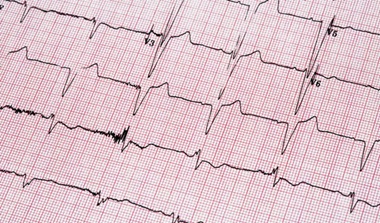Atrial Fibrillation Complications and Risks
If you have atrial fibrillation (Afib), your heart has episodes when it beats irregularly. The condition can cause troubling symptoms and serious medical complications, including blood clots that can lead to stroke and heart failure.
Afib is a type of arrhythmia, or abnormal heart rhythm.
It’s important to understand Afib complications so you can take steps to prevent them. You also should be aware of the warning signs so you know when to seek medical treatment.
Can Afib cause a stroke?
People with Afib have a significantly higher risk of stroke than the average population. They also tend to have more severe strokes with more serious complications and a higher chance of death from stroke.
During an episode of Afib, the heart’s two upper chambers (the atria) contract irregularly and quiver rapidly (fibrillate). When the atria don’t contract or squeeze correctly, blood can pool there, instead of moving to the ventricles (lower chambers). When blood pools, it can clot.
If a blood clot (also called an embolus) gets pumped out of the atria, it can travel to other parts of the body. Clots can get stuck and block blood flow to the brain, lungs, intestine, spleen or kidneys. If a blood clot travels to the brain, it can cause a stroke.
A stroke deprives the brain of oxygen and causes brain cells to die. It is a life-threatening emergency that may cause severe disability such as paralysis, blindness and cognitive impairment.
If you or someone around you experiences symptoms of a stroke, seek medical attention immediately. The signs are easily remembered with the American Stroke Association’s abbreviation FAST:
- Face drooping: Does one side of the face droop or is it numb? Ask the person to smile. Is the person’s smile uneven?
- Arm weakness: Is one arm weak or numb? Ask the person to raise both arms. Does one arm drift downward?
- Speech difficulty:Is speech slurred?
- Time to call 911: If the person has any of the symptoms above, call 911.
Atrial Fibrillation and Heart Failure
Heart failure occurs when the heart can’t pump enough blood to meet the body’s needs.
In a person with Afib, the heart beats quickly and irregularly. The atria don’t fill with blood or pump it out properly. That can make the heart work harder, weaken the heart muscle and lead to heart failure.
Some symptoms of heart failure are similar to Afib symptoms: weakness, fatigue and shortness of breath. So a person with Afib might not know they’re developing heart failure. Regular checkups can help detect the problem early.
Other Atrial Fibrillation Complications
People with Afib have an increased risk of other serious medical complications as well.
Heart attack
People with Afib have a higher chance of . A heart attack happens when blood flow to the heart is blocked.
Signs of a heart attack can be similar to Afib symptoms. They include shortness of breath and chest pain or discomfort. Chest pain from a heart attack can spread to the arms, back, neck or jaw. The symptoms can come on suddenly, or they can gradually get worse. If you think you might be having a heart attack, seek medical attention immediately.
AFib Treatment at Johns Hopkins
- Heart disease specialists oversee your care.
- Treatments are informed by the latest research.
- Care available throughout the Baltimore and Washington, D.C., metro areas.

Dementia
Recent studies have shown an association between Afib and dementia. Scientists believe Afib can limit the amount of oxygen that reaches the brain, leading to cognitive decline. Dementia can range from mild to severe, causing problems with memory, learning, concentration or decision-making.
Reducing Atrial Fibrillation Risks
Atrial fibrillation complications can be life-threatening and can cause severe impairments. It’s important to manage Afib to reduce your risk of complications.
Your health care provider might recommend certain strategies to prevent complications. Your treatment plan might include lifestyle modifications, medications and/or surgery.
To reduce the chance of potential complications of Afib, take the following steps to make sure your heart is as healthy as possible:
- Monitor and control your blood pressure. People with hypertension (high blood pressure) are more likely to develop Afib. And Afib and high blood pressure are both leading causes of stroke.
- Eat a heart-healthy diet.
- Exercise regularly.
- Follow your health care provider’s instructions carefully. For example, take all medications as prescribed and attend all your medical appointments.
- Limit alcohol and caffeine.
- Maintain a healthy weight.
- Manage stress.
- Stop smoking.






